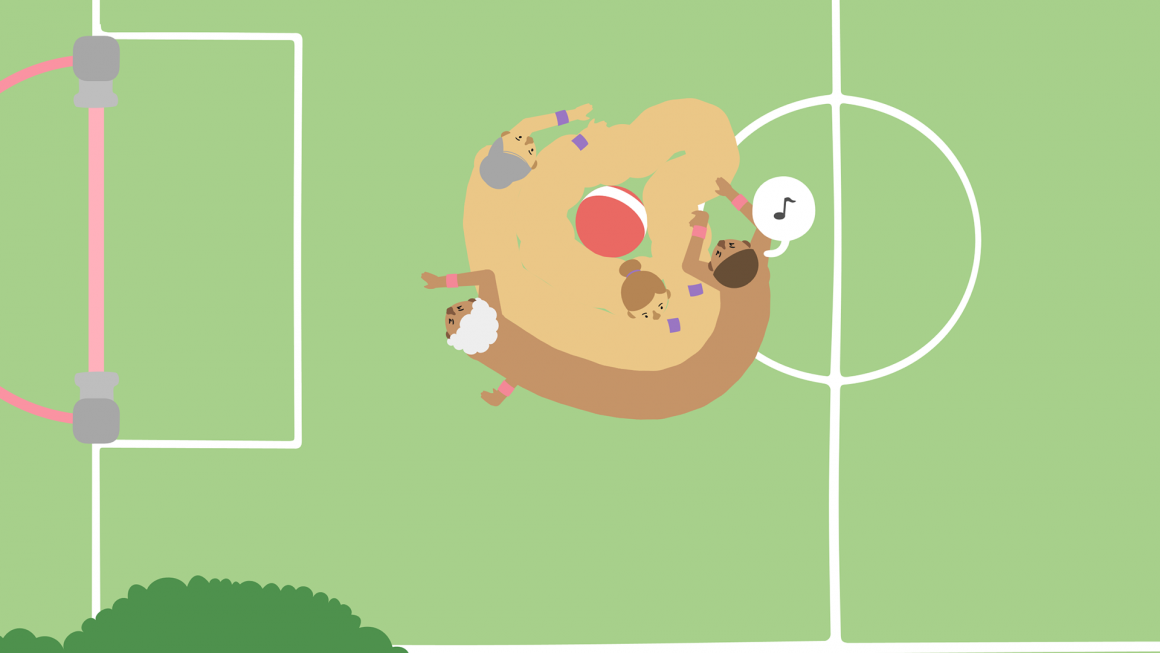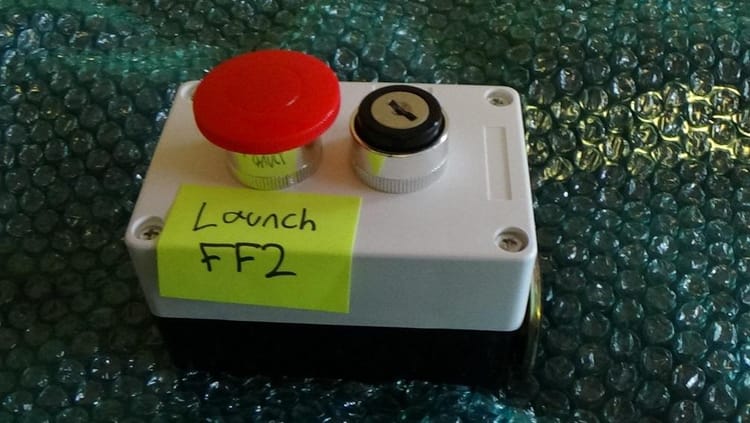The physical intimacy of Push Me Pull You’s design

This article is part of a collaboration with iQ by Intel.
The multiplayer game Push Me Pull You builds a sense of community with the help of a bizarre but goofy premise. In a world populated by strange two-headed “sports monsters,” players must face off against each other in a friendly game of ball without getting too tangled in their own bodies. Despite the odd (or slightly queasy) concept, Push Me Pull You draws players in with undeniable charm, creating a welcoming environment for people from all walks of life, regardless of age, race, or skill level.
Created by the small Melbourne studio House House, the game’s design hopes to bring players closer together—literally. Though a typical game includes four players, only two controllers can be used, requiring teammates get up close and personal. According to developer Michael McMaster, this was initially a practical decision designed to make sure the game was accessible to those with only two controllers.“(But) we realised pretty quickly that it introduced a strange new dynamic to the game,” he said. “When we exhibited the game at PAX East [expo] we opted to only connect two controllers, and it turned out great—lots of strangers ended up on teams together, and we ended up orchestrating a lot of funny, intimate experiences between players.”

House House wanted players of all skill sets and experience levels to feel invited into the mayhem, embedding a sense of inclusivity and community into the game’s design. By allowing players to customise their sports-monster with a wide range of hairstyles and skin colours before each match, they created a world that everyone could imagine themselves in. “We wanted to reflect a kind of broad normalcy, where players weren’t playing as specific, named, or overdesigned characters,” said McMaster. “We needed to be inclusive in defining that normalcy. That’s why we feature pigtails, dorky bowl-cuts, mohawks and combovers—we wanted to [emphasise] that this sport wasn’t specific to any gender, age, or class.”

Part of the fun of Push Me Pull You derives from creating all kinds of wacky combinations and imagining the relationship between the two separate heads: a grandma attached at the hip to a nephew, or a punk rocker who gets dragged along by a middle-aged dad. Players of all kinds are not only encouraged to see themselves in the game, but also to discover their own enjoyment, fun, and strategies through the minimal structure. House House found that by giving players little in the way of formal instructions, it not only made the game more accessible, but also forced teammates to create their own unique ways of communicating. They watched how, in a single match, teams would develop an entire lexicon of short-hands to shout at each other in an attempt to bring order to the fleshy chaos on screen.
the fun of Push Me Pull You is getting entangled in a mess of human mayhem
The game’s launch trailer even revealed some of their favourite terms for the most successful techniques, like the “Poke” (when a creature pushes one of their heads into the opponent’s centre, using its ability to extend to drive it away). Each lexicon developed was not only unique to the players but unique to each team’s interpretation of the game world, reflective of how they made sense of the quirky surroundings. Before House House knew it, “we’d established a four-person competitive scene that felt incredibly personal and private,” said McMaster. “We love that we’ve made something that has this element of creative discovery at its core.”
Since the game’s release this past May, House House has seen Push Me Pull You played in a variety of settings, including even a few elementary schools around Australia. Designed to encourage mutual understanding and creativity through experimental play, the game carries a host of useful lessons for children in particular. According to Dr. Ian Lewis, a lecturer at the University of Tasmania and expert on learning through games, the multiplayer may appear to be all fun and games, but playing can help them develop important skills. “Push Me Pull You seems like a madcap bit of fun at first, but these sorts of games can be used in a structured way to start discussion about cooperation, communication, and what happens when those things are absent,” he said. Whether children or adults, though, part of the fun of Push Me Pull You is getting entangled in a mess of human mayhem.



